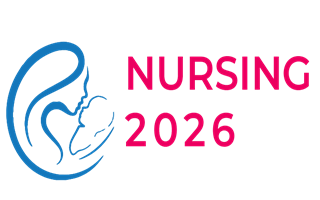3rd Global Summit on
Nursing and Midwifery
May 20-21, 2026 | Barcelona, Spain
Address: Avinguda Del Maresme 78 Ronda De Dalt Exit 15, 08940 Comellà de Llobregat, Barcelona, Spain
Nursing 2026

Kaauh, Saudi Arabia
Abstract:
Background: The quality of nurses' work life impacts their well-being, job satisfaction, and the overall quality of patient care.
Objective: This study aims to assess the quality of nursing work life (QNWL) and its associated factors, including demographic and occupational variables, among clinical nurses working in intensive care units (ICUs) and emergency departments.
Methods: A cross-sectional study was conducted using a convenience sampling method involving 251 registered nurses from ICUs and emergency departments in the Eastern Region of Saudi Arabia. Data were collected from July 15 to September 14, 2023, utilizing the Brook’s Quality of Nursing Work Life Survey (QNWL). Questionnaires were distributed at nursing reception desks in selected hospitals. Descriptive and inferential statistical analyses, including t-test, multiple linear regression and univariate ANOVA, were performed to evaluate the influence of demographic and work-related variables on overall QNWL using IBM SPSS 29 and JASP software.
Results: The mean score for QNWL was 172.12 (SD=27.37), indicating a moderate QNWL. A majority of nurses reported moderate levels of total QNWL (65.3%), moderate satisfaction with home/work life (70.9%), work design (73.7%), and work environment (55.4%), while satisfaction with work context was high (67.7%). The multiple linear regression model for overall QNWL was statistically significant (P<0.05). It revealed that educational qualification and age significantly influenced overall QNWL (P<0.05). However, marital status and family responsibilities, such as having dependent parents or children, did not have a significant impact on overall QNWL (P>0.05).
Conclusion: Nurses in Saudi Arabia face barriers that moderate satisfaction concerning work-life balance, work design, and work environment. Younger nurses and those with lower educational qualifications tended to report lower levels of QNWL. It is essential for policymakers to prioritize improvements in workplace conditions, professional development opportunities, and work-life balance initiatives to enhance nurse well-being and mitigate turnover.
Biography:
Abdullah AlRashdi is a skilled nursing leader and researcher with over 8 years of experience in clinical operations, team leadership, and healthcare management. As Head Nurse at King Abdullah bin Abdulaziz University Hospital, he oversees the Day Care and Endoscopy Units, driving improvements in care delivery and staff performance. His research focuses on nursing education and workforce development. Abdullah holds a Bachelor of Science in Nursing, a Master’s in Nursing Management, and is currently completing his MBA, combining clinical expertise with strategic leadership.
